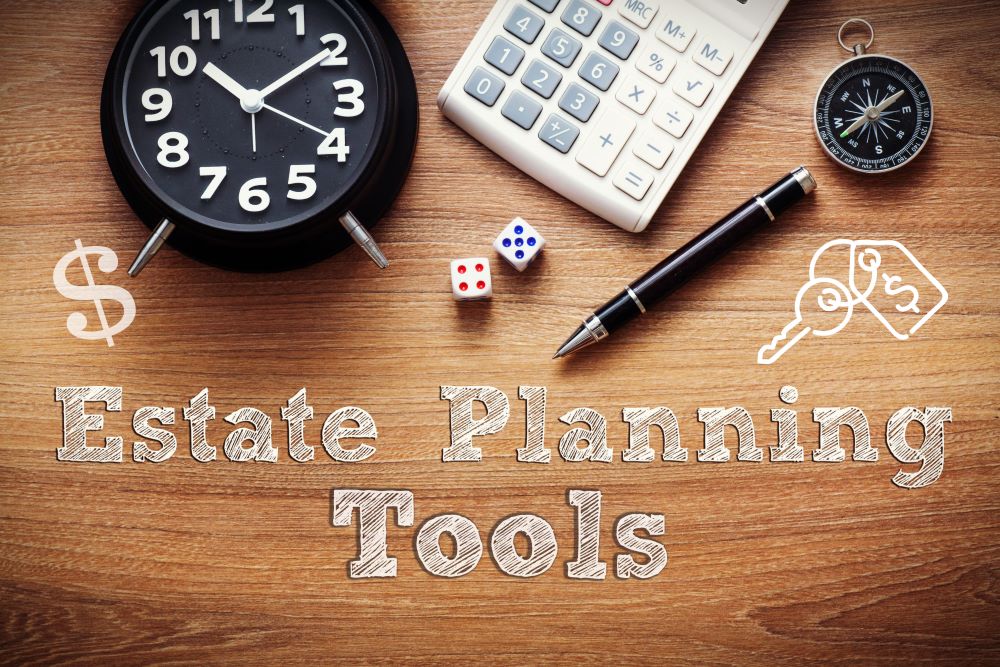Estate plans are not merely for the super-wealthy. Most of us have assets worth something we want to pass on to our loved ones. However, it is estimated by AARP that only 34% of Americans have made an estate plan. Also, if you make some of the mistakes listed in this article, you may pass on less of your assets and funds than you wish. If you need help with next steps, our Encino estate planning attorneys at Ourfalian & Ourfalian can help.
What Should Be In Your Estate Plan?
A comprehensive estate plan is a toolkit that settles your financial and legal affairs, giving you peace of mind that your assets will be handled and distributed as you intended. If you leave any of the following tools out, there could be a negative impact on you and your loved ones:
- Will: You detail what will happen to your property and who will raise the children when you pass away.
- Healthcare power of attorney: You appoint a person to make decisions about healthcare if you are incapacitated.
- Financial power of attorney: You name someone to make your financial decisions if you cannot.
Not Making An Estate Plan
Unfortunately, one of the most serious and common mistakes in this legal area is not doing an estate plan. Whether or not you have done estate planning, your loved ones will have to deal with your final affairs when you pass on. Regardless of the circumstances, your loved ones will be confronted by grief, and if there has been no estate planning, it is one more challenge they will be faced with.
It is always best to have a valid trust or will when you pass away. That way, those who love you know what your wishes were, and there is a clear path to move forward with handling your assets. It is best for your family if you have a will so it is clear who gets what and they know what you wanted to be done when you are gone.
Failing To Name Contingent Beneficiaries
A contingent beneficiary is a person who will receive the asset in the will if the primary beneficiary passes away. It is wise to name contingent beneficiaries for every asset in the will; if the primary one passes away, there will be no question of who gets it. Without contingent beneficiaries, there will likely be a will contest in probate court, which is usually a negative for your family and estate value.
Selecting The Wrong Person To Handle The Estate
An essential part of estate planning is choosing an executor. While your spouse might seem like the logical choice, they could be overwhelmed with grief and unable to think clearly about essential probate decisions. If they do not have the best grasp of finances, taxes, and investments, it may be better to choose someone else.
Also, situations arise where a child or spouse is not the ideal choice for executor because they disagree with the decisions you made for beneficiaries and other key matters. If you lack a good choice in the family to be your executor, you should talk to your estate planning attorney for ideas.
Making A Will That Specifies Investments
If the estate plan names investments that you want to leave to beneficiaries, it is essential to check that you still own them. If you do not, the estate could have to buy them at a higher current price, which would lower what your beneficiaries receive. This could drain most of your estate’s assets in the worst situation.
Not Doing Pre-Planning For Long-Term Care
It is wise for many people to have pre-planning for long-term care in their estate plan. Many people who require care in a nursing home will use Medicare. However, this is usually only possible if they exhaust their personal assets first. If you have a spouse behind on a fixed income, this can be a severe financial hardship.
When you include long-term care in the estate plan, you have a better financial path over the coming years. One way to do this is with a special needs trust, which allows for protecting a partner or spouse at home while making sure the one who needs Medicare funds can get them.
Not Making Gifts To Lower Estate Taxes
Another common estate planning gaffe is not to use early gifting to reduce the possible impact of estate taxes. For 2023, the IRS allows gifts of up to $17,000 per year per person to be exempt from estate taxes. For larger estates, taking advantage of early gifts can be key to avoiding estate taxes.
Not Updating Your Estate Plan
No matter how good the estate plan is, it must be updated occasionally. This is because family situations change, beneficiaries die, people get married and divorced, etc. Also, if your will is decades old and has not been updated, it could be out of compliance with current laws. Have your attorney review your estate plan every one or two years to be safe.
Not Telling Loved Ones About Your Plans And Wishes
It always helps to have a frank discussion with your loved ones about your estate plan. That way, they know what to expect when you pass on. One of the common reasons there is a contested will is there is an unpleasant surprise for one or more beneficiaries when the person passes away.
If a beneficiary thinks they were not treated appropriately regarding inheritance, it could cause problems. While beneficiaries must have valid, specific reasons to challenge a will, an unhappy beneficiary can at the very least cause family discord. So, that is a problem that is best avoided by communicating your intentions with your family ahead of time.
Contact Our Encino Estate Planning Attorneys
If you want to create an estate plan that ensures your assets are protected and inherited according to your wishes, you need the help of a skilled attorney. Contact our Encino estate planning attorneys at Ourfalian & Ourfalian are ready to assist at (818) 550-7777.




